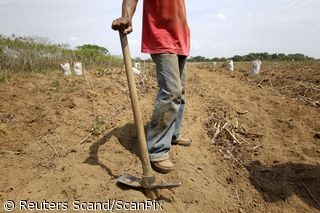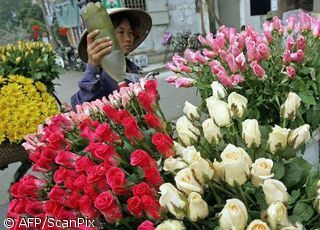A discussion is under way inside the European Union as to how many years are required before its new members will match the living standards prevailing in the rest of the now 25-nation EU
Published:
12 August 2004 y., Thursday
A discussion is under way inside the European Union as to how many years are required before its new members will match the living standards prevailing in the rest of the now 25-nation EU. Many economists predict that even those new members that have relatively strong economies will require at least 30 years to reach the per-capita income levels prevailing in Western Europe.
Of the new EU members, Slovakia and three Baltic states are generally considered to be the fastest-growing economically. Each of them aspire to match the achievement of one of the oldest members of the EU, Ireland, which in the 1990s registered economic growth rates averaging over eight percent.
Willem Buiter, chief economist at the European Bank for Reconstruction and Development in London, says Ireland is a worthy model for the new EU members.
"Ireland has done it. From being a poor west European country they are now a rich west European country, richer than the average west European country and richer even than Britain," he said. "But they had a number of factors working for them that are not present in Eastern Europe, the main thing being the demographics."
Barbara Boettcher, an economist at Deutsche Bank in Frankfurt, agrees that the Ireland model won't be easy to emulate.
"You won't see that in Eastern Europe," she said. "Eastern European countries, which are designed to be winners are those that have attracted a large share of the production oriented foreign direct investment, like Slovakia, Hungary and the Czech Republic have done."
Šaltinis:
voanews.com
Copying, publishing, announcing any information from the News.lt portal without written permission of News.lt editorial office is prohibited.
The most popular articles
 EU animal welfare rules must be more rigorously enforced, with more inspections and effective penalties, said the Agriculture Committee on Wednesday.
more »
EU animal welfare rules must be more rigorously enforced, with more inspections and effective penalties, said the Agriculture Committee on Wednesday.
more »
 Fifty-three year old Rasima collects dirt everyday from a paddy field in Indonesia’s east Java province, turning it into a snack made entirely from soil, called "ampo."
more »
Fifty-three year old Rasima collects dirt everyday from a paddy field in Indonesia’s east Java province, turning it into a snack made entirely from soil, called "ampo."
more »
 At the moment an Argentinian working for a French company in Spain can't travel to France for a meeting on his long-term visa.
more »
At the moment an Argentinian working for a French company in Spain can't travel to France for a meeting on his long-term visa.
more »
 An EU-wide strategy is needed to combat violence against women, which must be recognised as a crime, said participants in a European Parliament public hearing with national parliaments and civil society representatives, held on Tuesday to mark International Women's Day.
more »
An EU-wide strategy is needed to combat violence against women, which must be recognised as a crime, said participants in a European Parliament public hearing with national parliaments and civil society representatives, held on Tuesday to mark International Women's Day.
more »
 You know its Tet in Vietnam when Peach and Kumquat orange trees decorate every home, shop and public establishment.
more »
You know its Tet in Vietnam when Peach and Kumquat orange trees decorate every home, shop and public establishment.
more »
 A surveyor has set up his tripod and instruments under a hot tropical sun to measure plots of land in a village where the Dac Kray minority community were settled four years ago.
more »
A surveyor has set up his tripod and instruments under a hot tropical sun to measure plots of land in a village where the Dac Kray minority community were settled four years ago.
more »
 Japanese men are answering the call of Valentine s Day a month late.
more »
Japanese men are answering the call of Valentine s Day a month late.
more »
 In three urgent resolutions adopted on Thursday, Parliament urges Hamas to release kidnapped Israeli soldier Gilad Shalit, deplores the escalating criminal violence in Mexico and calls on South Korea to scrap the death penalty.
more »
In three urgent resolutions adopted on Thursday, Parliament urges Hamas to release kidnapped Israeli soldier Gilad Shalit, deplores the escalating criminal violence in Mexico and calls on South Korea to scrap the death penalty.
more »
 The plight of Europe's 10 million Roma population will fall under the spotlight Tuesday afternoon when MEPs discuss an upcoming Roman summit.
more »
The plight of Europe's 10 million Roma population will fall under the spotlight Tuesday afternoon when MEPs discuss an upcoming Roman summit.
more »
 EU Employment and Social Affairs Ministers have today adopted a Directive to prevent injuries and infections to healthcare workers from sharp objects such as needle sticks – one of the most serious health and safety threats in European workplaces and estimated to cause 1 million injuries each year.
more »
EU Employment and Social Affairs Ministers have today adopted a Directive to prevent injuries and infections to healthcare workers from sharp objects such as needle sticks – one of the most serious health and safety threats in European workplaces and estimated to cause 1 million injuries each year.
more »